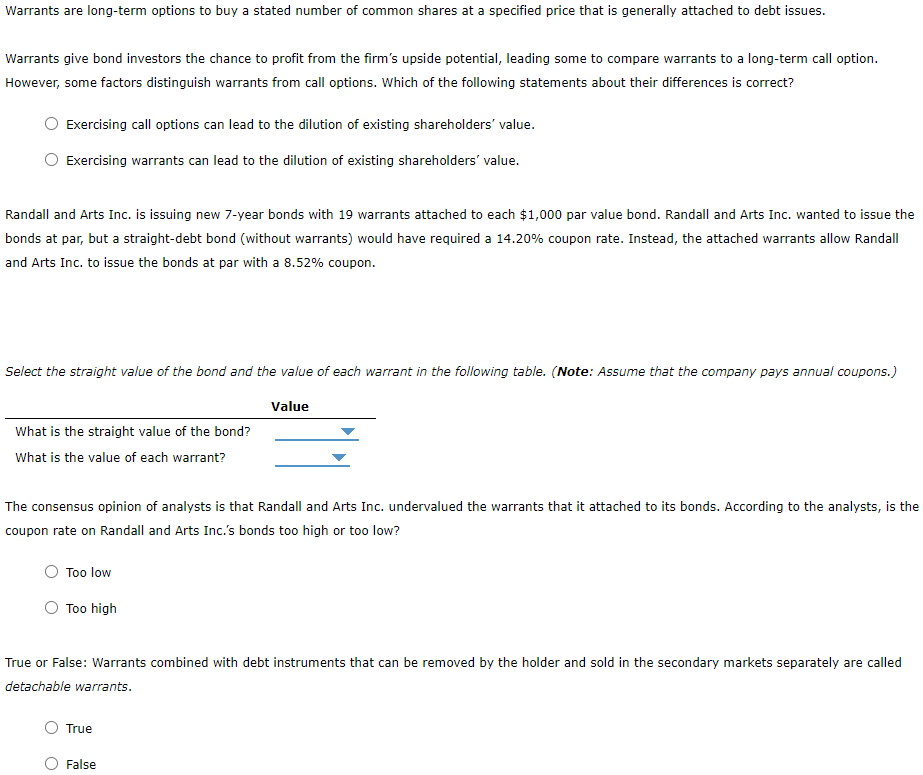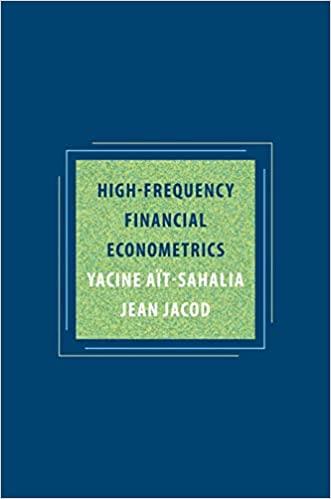
Warrants are long-term options to buy a stated number of common shares at a specified price that is generally attached to debt issues. Warrants give bond investors the chance to profit from the firm's upside potential, leading some to compare warrants to a long-term call option. However, some factors distinguish warrants from call options. Which of the following statements about their differences is correct? Exercising call options can lead to the dilution of existing shareholders' value. Exercising warrants can lead to the dilution of existing shareholders' value. Randall and Arts Inc. is issuing new 7-year bonds with 19 warrants attached to each $1,000 par value bond. Randall and Arts Inc. wanted to issue the bonds at par, but a straight-debt bond (without warrants) would have required a 14.20% coupon rate. Instead, the attached warrants allow Randall and Arts Inc. to issue the bonds at par with a 8.52% coupon. Select the straight value of the bond and the value of each warrant in the following table. (Note: Assume that the company pays annual coupons.) Value What is the straight value of the bond? What is the value of each warrant? The consensus opinion of analysts is that Randall and Arts Inc. undervalued the warrants that it attached to its bonds. According to the analysts, is the coupon rate on Randall and Arts Inc.'s bonds too high or too low? Too low Too high True or False: Warrants combined with debt instruments that can be removed by the holder and sold in the secondary markets separately are called detachable warrants. True False Warrants are long-term options to buy a stated number of common shares at a specified price that is generally attached to debt issues. Warrants give bond investors the chance to profit from the firm's upside potential, leading some to compare warrants to a long-term call option. However, some factors distinguish warrants from call options. Which of the following statements about their differences is correct? Exercising call options can lead to the dilution of existing shareholders' value. Exercising warrants can lead to the dilution of existing shareholders' value. Randall and Arts Inc. is issuing new 7-year bonds with 19 warrants attached to each $1,000 par value bond. Randall and Arts Inc. wanted to issue the bonds at par, but a straight-debt bond (without warrants) would have required a 14.20% coupon rate. Instead, the attached warrants allow Randall and Arts Inc. to issue the bonds at par with a 8.52% coupon. Select the straight value of the bond and the value of each warrant in the following table. (Note: Assume that the company pays annual coupons.) Value What is the straight value of the bond? What is the value of each warrant? The consensus opinion of analysts is that Randall and Arts Inc. undervalued the warrants that it attached to its bonds. According to the analysts, is the coupon rate on Randall and Arts Inc.'s bonds too high or too low? Too low Too high True or False: Warrants combined with debt instruments that can be removed by the holder and sold in the secondary markets separately are called detachable warrants. True False







